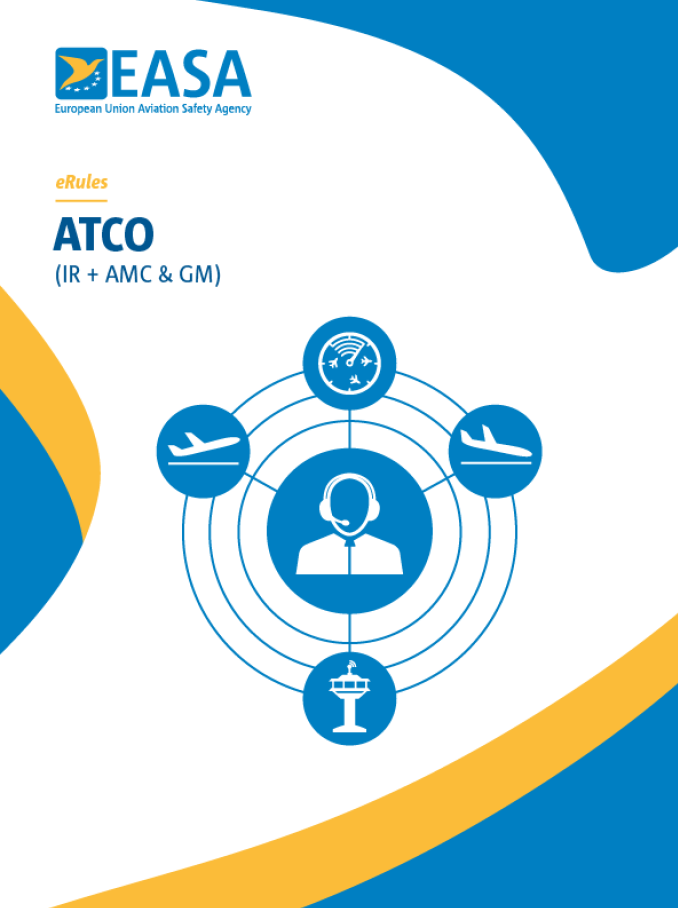ATCO.D.075 Continuation training
Regulation (EU) 2015/340
Continuation training shall consist of refresher and conversion training courses and shall be provided according to the requirements contained in the unit competence scheme according to ATCO.B.025.
Regulation (EU) 2015/340
(a) Refresher training course(s) shall be developed and provided by training organisations and approved by the competent authority.
(b) Refresher training shall be designed to review, reinforce or enhance the existing knowledge and skills of air traffic controllers to provide a safe, orderly and expeditious flow of air traffic and shall contain at least:
(1) standard practices and procedures training, using approved phraseology and effective communication;
(2) abnormal and emergency situations training, using approved phraseology and effective communication; and
(3) human factors training.
(c) A syllabus for the refresher training course shall be defined, and where a subject refreshes skills of air traffic controllers, performance objectives shall also be developed.
AMC1 ATCO.D.080 Refresher training
ED Decision 2015/010/R
EXAMINATIONS AND ASSESSMENTS
Refresher topics should be examined or assessed using the processes described in the unit competence scheme.
GM1 ATCO.D.080 Refresher training
ED Decision 2015/010/R
REFRESHER TRAINING SUBJECTS
Topics for refresher training subjects may include rarely used procedures and practices, such as seasonally dependent procedures, trends and observations from occurrence reports and results of normal operations safety surveys.
GM2 ATCO.D.080 Refresher training
ED Decision 2015/010/R
REFRESHER TRAINING STRUCTURE
Refresher training may be developed and structured in accordance with the established duration of the unit endorsement it refreshes. This may mean structuring the refresher training in modular fashion. For instance, training in standard practices and procedures, abnormal and emergency situations and human factors may be given separately or integrated into any other modules.
GM3 ATCO.D.080 Refresher training
ED Decision 2015/010/R
GENERAL
Guidance for the development of refresher training courses can be found in EUROCONTROL’s document ‘ATC Refresher Training Manual’, Edition 1.0., dated 06.03.2015.
GM1 ATCO.D.080(b) Refresher training
ED Decision 2019/004/R
REFRESHER TRAINING FOR AIR TRAFFIC CONTROLLERS PROVIDING REMOTE AERODROME AIR TRAFFIC SERVICES
For air traffic controllers holding a unit endorsement for the provision of aerodrome control service from a ‘remote tower’ (defined in the EASA ‘Guidance Material on remote aerodrome air traffic services’ — Issue 2), the refresher training should include familiarisation with the physical aerodrome environment and the different stakeholders e.g. via study visit(s).
AMC1 ATCO.D.080(b)(1);(2) Refresher training
ED Decision 2015/010/R
PHRASEOLOGY TRAINING
Training organisations should develop objectives for phraseology.
AMC2 ATCO.D.080(b)(2) Refresher training
ED Decision 2015/010/R
ABNORMAL SITUATION AND EMERGENCY TRAINING
Abnormal situation and emergency training should be designed to expose air traffic controllers to circumstances and situations which they do not habitually or commonly experience.
The essential difference from an emergency situation is that the element of danger or serious risk is not necessarily present in an abnormal situation.
GM1 ATCO.D.080(b)(1);(2) Refresher training
ED Decision 2015/010/R
EFFECTIVE COMMUNICATION
Communication misunderstanding is present in many air traffic occurrences and the consistent use of approved phraseology is designed to mitigate such occurrences.
For the purpose of refresher training, emphasis is, therefore, put on effective communication, including the use of approved phraseology, both for the use of standard practices and procedures and for abnormal and emergency situations training.
Effective communication should make use of a variety of communication modes, including the use of appropriate phraseology and radio communication.
Phraseology and radio communication training is part of the linguistic training according to ICAO; radio communication phraseology samples offer learning opportunities and foster harmonisation.
AMC1 ATCO.D.080(b)(3) Refresher training
ED Decision 2015/010/R
HUMAN FACTORS
(a) Training organisations should train air traffic controllers at least in team resource management, fatigue management and stress management.
(b) The team resource management training may also make use of STD and/or occurrence case studies.
GM1 ATCO.D.080(b)(3) Refresher training
ED Decision 2023/011/R
TRAINING IN TEAM RESOURCE MANAGEMENT (TRM)
Guidance on team resource management can be found in the Network Manager document ‘Team Resource Management — Guidelines for the Implementation and Enhancement of TRM’, edition 1.0 of 26 April 2021, and associated Annex A to TRM Guidance Material - TRM Modules | SKYbrary Aviation Safety and Annex B to TRM Guidance Material - Facilitator Competence and Training | SKYbrary Aviation Safety).
[applicable from 4 August 2024 - ED Decision 2023/011/R]
ATCO.D.085 Conversion training
Regulation (EU) 2015/340
(a) Conversion training course(s) shall be developed and provided by training organisations and approved by the competent authority.
(b) Conversion training shall be designed to provide knowledge and skills appropriate to a change in the operational environment and shall be provided by training organisations when the safety assessment of the change concludes the need for such training.
(c) Conversion training courses shall include the determination of:
(1) the appropriate training method for and duration of the course, taking into account the nature and extent of the change; and
(2) the examination and/or assessment methods for the conversion training.
(d) Conversion training shall be provided before air traffic controllers exercise the privileges of their licence in the changed operational environment.
GM1 ATCO.D.085 Conversion training
ED Decision 2019/004/R
CONVERSION TRAINING FOR AIR TRAFFIC CONTROLLERS PROVIDING REMOTE AERODROME AIR TRAFFIC SERVICES
In case of a transition from a ‘conventional tower’ (defined in the EASA ‘Guidance Material on remote aerodrome air traffic services’ — Issue 2) to a ‘remote tower’ (defined in the EASA ‘Guidance Material on remote aerodrome air traffic services’ — Issue 2), the conversion training for air traffic controllers should at least include the items listed in GM3 ATCO.D.060(c), and if applicable the items listed in GM4 ATCO.D.060(c).
In case of a transition from a ‘remote tower’ to a ‘conventional tower’, the training organisation should consider possible training needs, if appropriate, required by the change of operational environment.
In case of a transition from ‘single mode of operation’ (defined in the EASA ‘Guidance Material on remote aerodrome air traffic services’ — Issue 2) to ‘multiple mode of operation’ (defined in the EASA ‘Guidance Material on remote aerodrome air traffic services’ — Issue 2), the conversion training for air traffic controllers should at least include the items listed in GM4 ATCO.D.060(c).
